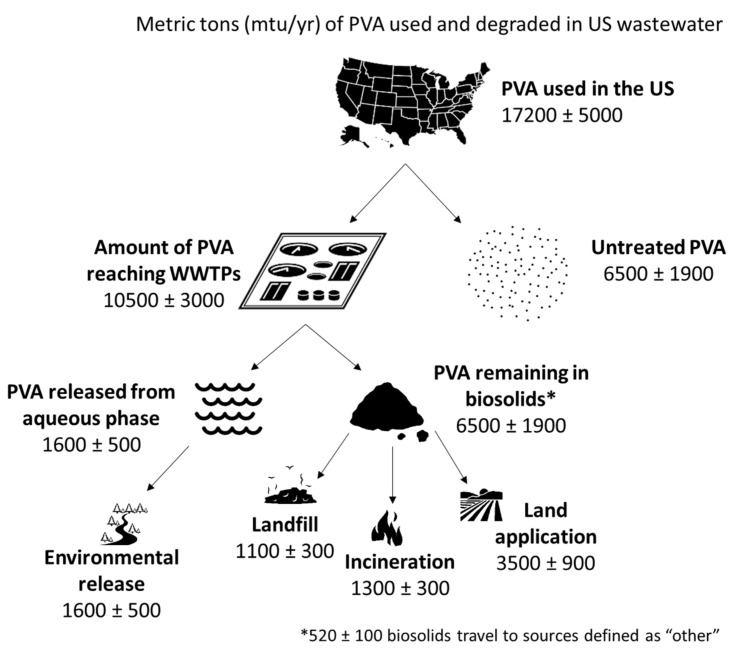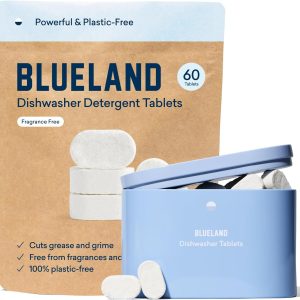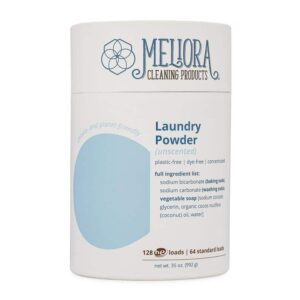Laundry pods and laundry sheets have gained popularity as eco-friendly alternatives to traditional liquid detergents, primarily due to their claims of reducing plastic waste. However, many people may be unaware that these seemingly plastic-free products actually contain a significant amount of plastic in the form of PVA or polyvinyl alcohol, also known as PVOH. In this article, we’ll try to answer the question: “Do laundry detergent sheets contain plastic?”
We may receive a commission from some of the links in this post. Thank you for helping us support our mission.
Understanding PVA: The Hidden Plastic
Polyvinyl alcohol is a type of dissolvable plastic widely used in various applications, including laundry sheets and dishwasher pods. While the thin plastic film used in detergent pods is more easily recognized as plastic, some consumers may be surprised to learn that it is also utilized to create dissolvable laundry sheets and strips.
The United States alone consumes a staggering 17,000 metric tons (over 37 million pounds) of polyvinyl alcohol annually!
Where to Find PVA in Cleaning Products
These chemicals can be found in a range of cleaning products, from laundry detergents to all-purpose cleaners. If the cleaning product comes in a dissolvable sheet or is wrapped in a dissolvable film, it’s essential to check the ingredient list for terms like polyvinyl alcohol, PVA, or PVOH.
Here are some examples of products that contain polyvinyl alcohols:
- Laundry detergent sheets
- Laundry detergent strips
- Laundry detergent pods
- Dissolving fabric softener sheets and strips
- Dishwasher pods
- Hand soap pods
- Hand soap sheets
- Body wash sheets
- Toilet cleaner pods
- Toilet cleaner sheets
- All-purpose cleaner pods
- All-purpose cleaner sheets
- Dishwasher cleaner pods
- Washing machine cleaner pods
The Environmental Impact
Despite being marketed as an environmentally friendly material, these compounds are far from harmless to the environment. The polyvinyl alcohols used in laundry pods and sheets are designed to dissolve plastic into the water system. A study published in 2021 revealed that polyvinyl alcohols used in these products do not readily biodegrade during wastewater treatment and are eventually released into the environment. This situation creates a problem similar to the use of microbeads in cosmetics or the release of microplastics from synthetic clothing.
The water-solubility of polyvinyl alcohols leads to a misleading perception that it simply disappears when mixed with water in washing machines or dishwashers. However, dissolved plastic has to end up somewhere, and in this case, it enters the local sewage system, making its way to wastewater treatment plants (WWTPs).

Even during the various stages of wastewater treatment, these chemicals do not fully break down, and traces of it are released into the environment through effluent water, contributing to plastic pollution in rivers, lakes, and oceans. Some may be removed with solid waste, which can be incinerated, sent to landfills, or reused for agricultural purposes.
The Biodegradability Dilemma
While these compounds are water-soluble and have the potential to biodegrade into simple byproducts like carbon dioxide and water, the current conditions at most wastewater treatment plants in the United States do not support its full breakdown. This is similar to the issue of plastic recycling, where only a small percentage of plastic waste is actually recycled.
For these chemicals to biodegrade effectively, specific conditions like temperature, presence of suitable microbes, and time are required. Unfortunately, most wastewaster treatment plants (WWTPs) are not optimized for breaking down lower-priority pollutants like dissolved plastics, including polyvinyl alcohols. So, while this polymer is technically biodegradable, it requires specific conditions or microorganisms to break down the plastic particles that are released from your laundry and dishwasher pods.
To address this, either wastewater treatment plants need to be upgraded to accommodate such substances, requiring significant infrastructure changes, or efforts must be made to prevent these pollutants from entering the water system in the first place. These are costly and time consuming upgrades that may not be a priority for municipalities and other institutions that manage these facilities.
Embracing Plastic-Free Laundry Detergents
So what can you do?
The most effective way to prevent plastic from entering the water system through home appliances is to opt for products that are truly plastic-free. This serves as a prime example of an unfortunate material substitution that only replaces the plastic jug with plastic in the form of polyvinyl alcohols within the detergent pod or sheet. Keep an eye out for products that use polyvinyl alcohols and avoid them. Even though polyvinyl alcohol has the potential to dissolve in water, particles will continue to end up in the environment until water treatment facilities are able to more effectively process them.
While it might be tempting to stick to laundry sheets for their convenience, switching to a more natural laundry powder has proven to be great for us – not to mention it’s very difficult, to find PVA free laundry sheets. We really recommend both Meliora’s Laundry Powder as a great, convenient, and eco-friendly pva free laundry detergent and Blueland’s Dishwasher Detergent Tablets as an amazing sustainable dish detergent:
-
Blueland Dishwasher Detergent Tablets$29.99
-
Meliora Laundry Powder$20.89
To take a step towards a plastic-free laundry routine, consider using a PVA-free laundry detergent powder like the Meliora Laundry Powder above. Powder detergents typically come in recyclable cardboard or paper packaging, significantly reducing plastic waste. By making this simple switch, you can play a crucial role in safeguarding our environment from the harmful impact of plastic pollution. Also, take a look at the other Meliora products on The List for other polyvinyl alcohol-free cleaning products!
In conclusion, while laundry pods and sheets may appear to be plastic-free alternatives, the truth lies in the hidden presence of polyvinyl alcohol contributing to microplastics. Understanding the impact of these chemicals on the environment empowers us to make more informed choices when selecting our cleaning products. By embracing plastic-free alternatives, we can work together to create a cleaner and greener future for generations to come. Let’s say goodbye to plastic and embrace a sustainable laundry routine today!

